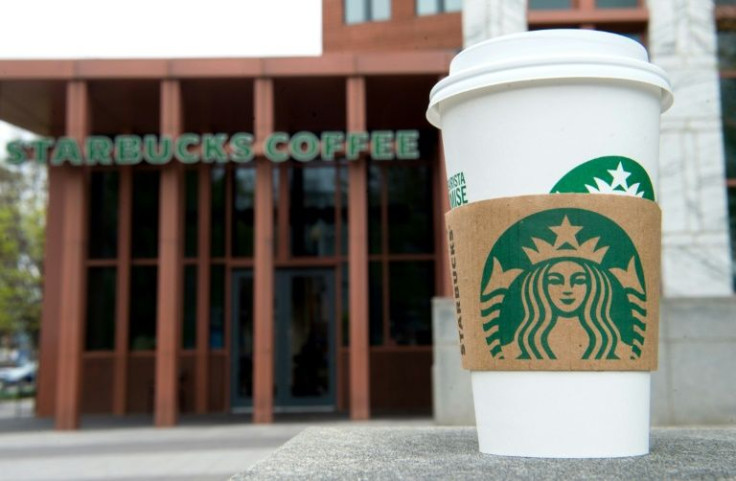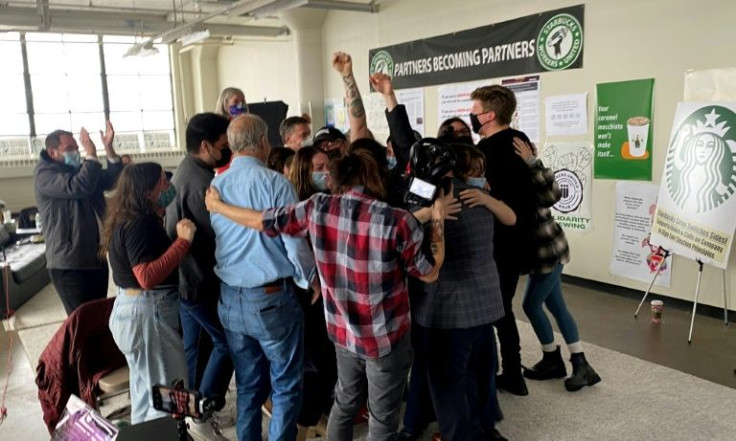US Starbucks Workers Score Union Breakthrough
Workers at two Starbucks cafes in Buffalo, New York voted to establish a union, the first at the coffee chain's company-owned shops in the United States.
There were hugs and cries of joy at the union office as the campaign won a decisive majority Thursday at the company's Elmwood Avenue shop in northern New York state, before results were announced on votes at two other cafes.
"It has been an unbelievably long road to get to this count," said Michelle Eisen, who has worked at the shop for more than 11 years. "We've done it in spite of all the company has thrown at us."
The outcome was also cheered by two of the most prominent US progressive politicians.
Senator Bernie Sanders saluted the group on Twitter, and Representative Alexandria Ocasio-Cortez said she was "proud" of the workers for persevering through a difficult campaign.
The mood became more subdued after officials with the National Labor Relations Board (NLRB) announced that a majority at a second Buffalo-area cafe voted against the union.
But union backers were smiling again after a third store in the region also voted in favor of representation.

Final results await certification by the NLRB following challenges to some votes, but union supporters say they are certain of wins in two of the shops.
"This is a monumental victory, this is a dream come true," said Lexi Rizzo, another union supporter.
A Starbucks spokeswoman said the coffee giant continues to believe conditions do not justify an intermediary between the company and workers, but added, "we respect our partners' right to organize."
Starbucks will await the final certification of the results next week before announcing next steps, she said.
The vote is the culmination of an effort launched in August by about 50 employees under the banner of "Starbucks Workers United."
A "yes" vote might have a knock-on effect -- not just for Starbucks, but for other US firms like Amazon who are fighting similar efforts by workers to organize.

Earlier Thursday, Steve Boyd, a 60-year-old attorney, expressed support for the workers as he exited the Elmwood Avenue location in the city not far from the Canadian border with his daily fix.
"I see them every morning. They are sort of part of my day and they should have a living wage," Boyd said.
"All across the US, businesses are complaining that they can't find people to work, and the best way to find people to work is to give them fair wages, fair working conditions."
The campaign shows how workers are becoming more assertive at a time when tight job markets have given employees more clout, said Cedric de Leon, a labor expert at University of Massachusetts Amherst.
"The bargaining power of workers is very high at the moment," de Leon told AFP.
There have been high-profile actions at other companies, such as a five-week strike at tractor maker John Deere & Co. earlier this fall.
And some 4.2 million Americans left their jobs in October, part of a phenomenon dubbed "The Great Resignation" that has added to the tightness in labor markets.
Will Westlake, 24, joined Starbucks in May and said he was initially attracted to the company's progressive reputation and better working conditions compared with other cafes.
He said he later "found out that wasn't the case," and was surprised that colleagues with much more experience at the cafe were only making slightly more.
The coffee chain, which recently announced that it was lifting its minimum wage to $15 an hour, has stressed that it is not against organized labor, but argued that the issues raised by workers do not justify a union.
Union supporters say Starbucks has cycled about 200 managers and supervisors through the stores since August, in an apparent effort to win over undecided employees.
The company's longtime architect and former CEO Howard Schultz led a meeting with employees in November.
Labor backers describe Buffalo as just the start of an effort that has already spread to the southwestern state of Arizona, where workers recently demanded a vote.
© Copyright AFP 2024. All rights reserved.




















